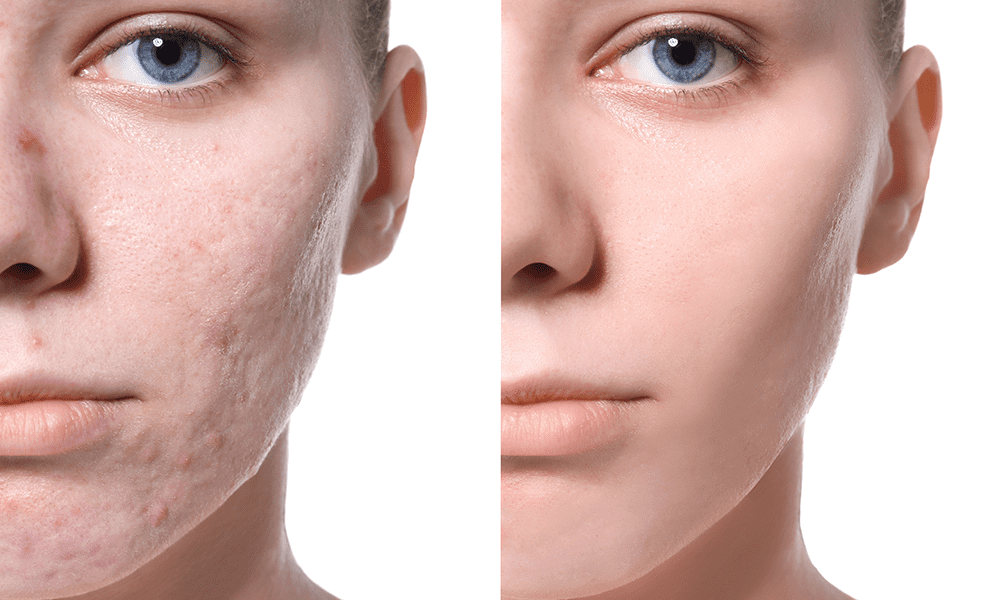Unveiling Clearer Skin: The Definitive Guide to Acne Scar Treatment

Acne, though often considered a transient affliction of adolescence, can leave a lasting legacy in the form of acne scar treatment. These pesky reminders of past breakouts can persist long after the pimples have vanished, prompting many to seek effective solutions to restore smooth, blemish-free skin.
The quest for effective acne scar treatment spans centuries, with ancient civilizations experimenting with various remedies and potions to banish blemishes and restore vitality to the skin. Today, modern dermatology offers a myriad of options for those seeking to address acne scars, ranging from topical creams and ointments to advanced laser therapies and surgical procedures.
Acne scar treatment is not a one-size-fits-all solution. The optimal approach depends on several factors, including the type and severity of scars, skin type, and individual preferences. Consulting with a qualified dermatologist is essential to develop a personalized treatment plan tailored to one’s unique needs and goals.
Topical treatments are often the first line of defense in acne scar treatment. These formulations typically contain ingredients such as retinoids, alpha hydroxy acids (AHAs), and vitamin C, which work to promote cell turnover, fade discoloration, and stimulate collagen production. While topical treatments can yield noticeable improvements in mild to moderate acne scars, patience and consistency are key, as results may take several weeks to months to become apparent.
For those seeking more dramatic results, acne scar treatment may involve advanced procedures such as chemical peels, microdermabrasion, or microneedling. These minimally invasive techniques work by removing the outer layers of damaged skin, stimulating collagen production, and encouraging the growth of new, healthy tissue. While these procedures may entail some downtime and discomfort, the results can be transformative, leading to smoother, more even-toned skin over time.
In recent years, laser therapy has emerged as a leading contender in the realm of acne scar treatment. Utilizing advanced laser technology, dermatologists can precisely target and vaporize scar tissue, while simultaneously stimulating collagen remodeling beneath the skin’s surface. This results in smoother texture, improved tone, and diminished appearance of scars. With various types of lasers available, including fractional ablative and non-ablative lasers, dermatologists can tailor treatment to suit individual skin types and concerns.
For individuals with deep or stubborn acne scars, surgical intervention may be necessary to achieve optimal results. Procedures such as punch excision, subcision, and dermal fillers can effectively address pitted or depressed scars by physically removing or redistributing scar tissue and restoring volume to the skin. While surgical acne scar treatment may involve a longer recovery period and carry higher risks than non-invasive alternatives, the outcomes can be dramatic and long-lasting.
In addition to professional treatments, at-home skincare routines play a crucial role in acne scar treatment and maintenance. Gentle cleansing, regular exfoliation, and daily sunscreen use are essential steps to promote healthy skin renewal and prevent further damage. Incorporating products containing ingredients such as niacinamide, hyaluronic acid, and peptides can further enhance the skin’s resilience and repair processes, complementing professional treatments and prolonging their benefits.
It is important to approach acne scar treatment with realistic expectations and patience. While modern dermatology offers a wealth of options for addressing acne scars, achieving significant improvement often requires a combination of treatments and ongoing maintenance. Consistency and diligence in both professional care and at-home skincare are essential to achieving and maintaining clear, radiant skin in the long term.
In conclusion, acne scar treatment is a multifaceted journey that requires careful consideration of individual needs, preferences, and goals. From topical creams and minimally invasive procedures to advanced laser therapies and surgical interventions, the options for addressing acne scars are vast and varied. By partnering with a qualified dermatologist and adopting a comprehensive approach to skincare, individuals can embark on a path towards clearer, more confident skin, reclaiming their complexion and restoring their self-esteem.
